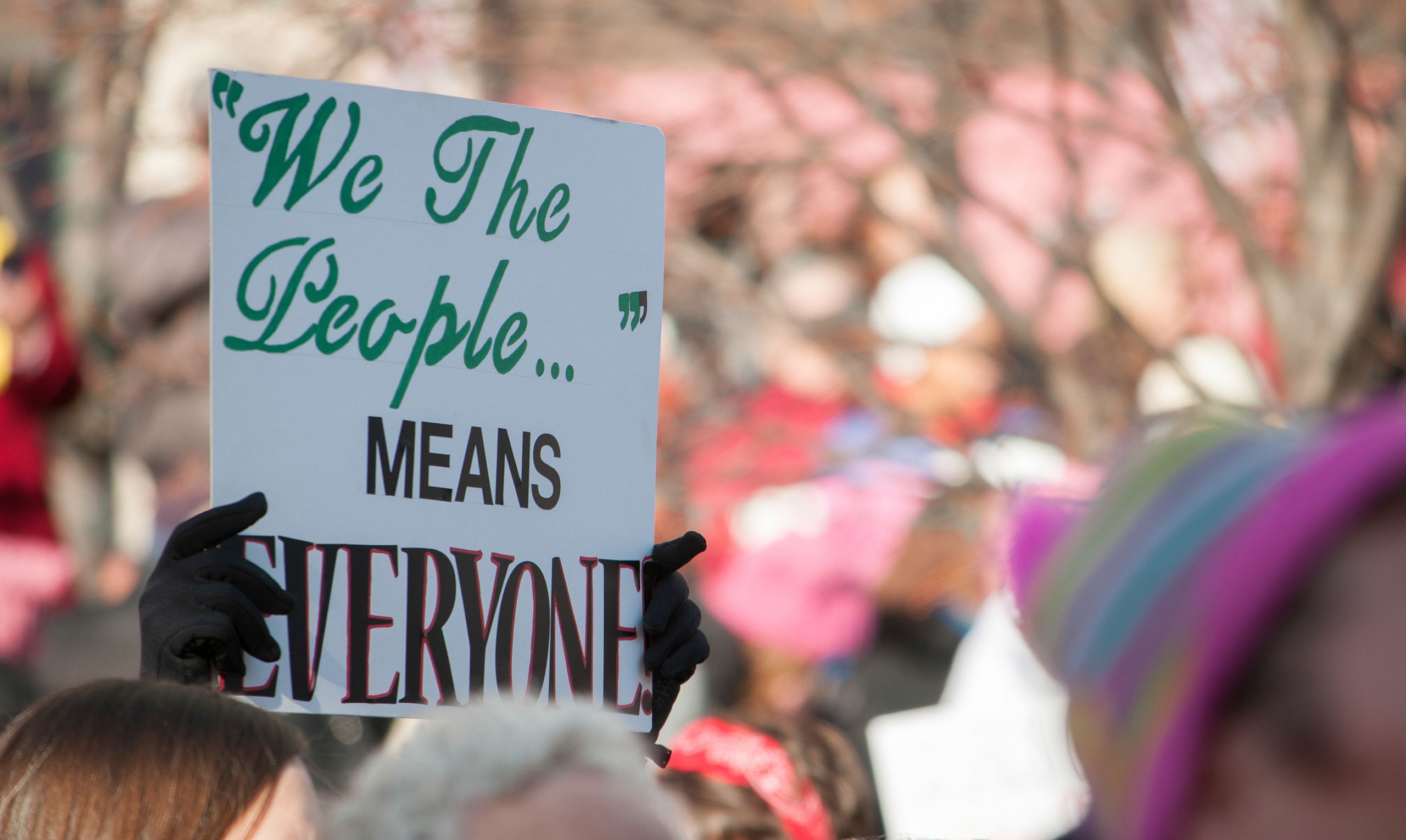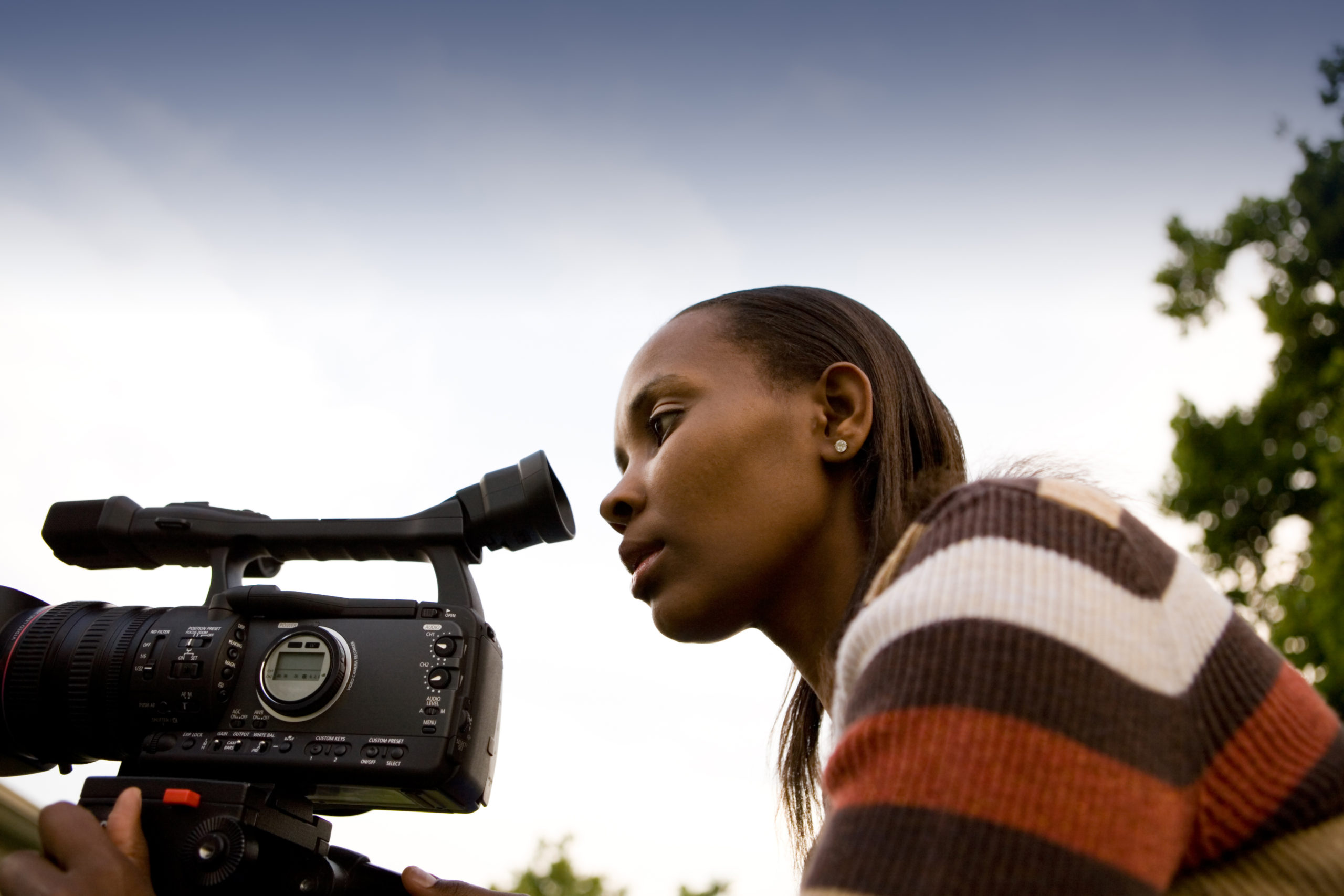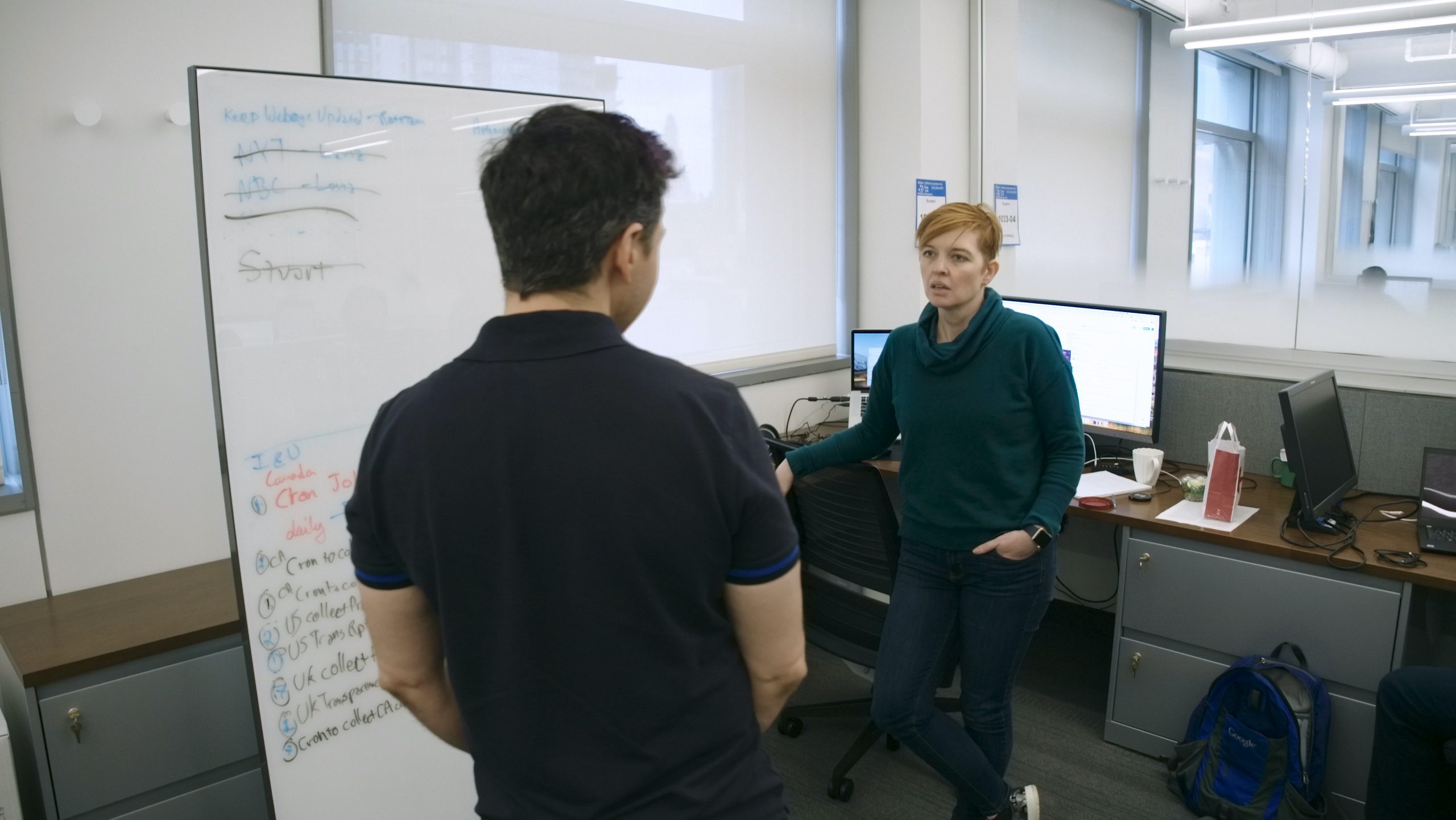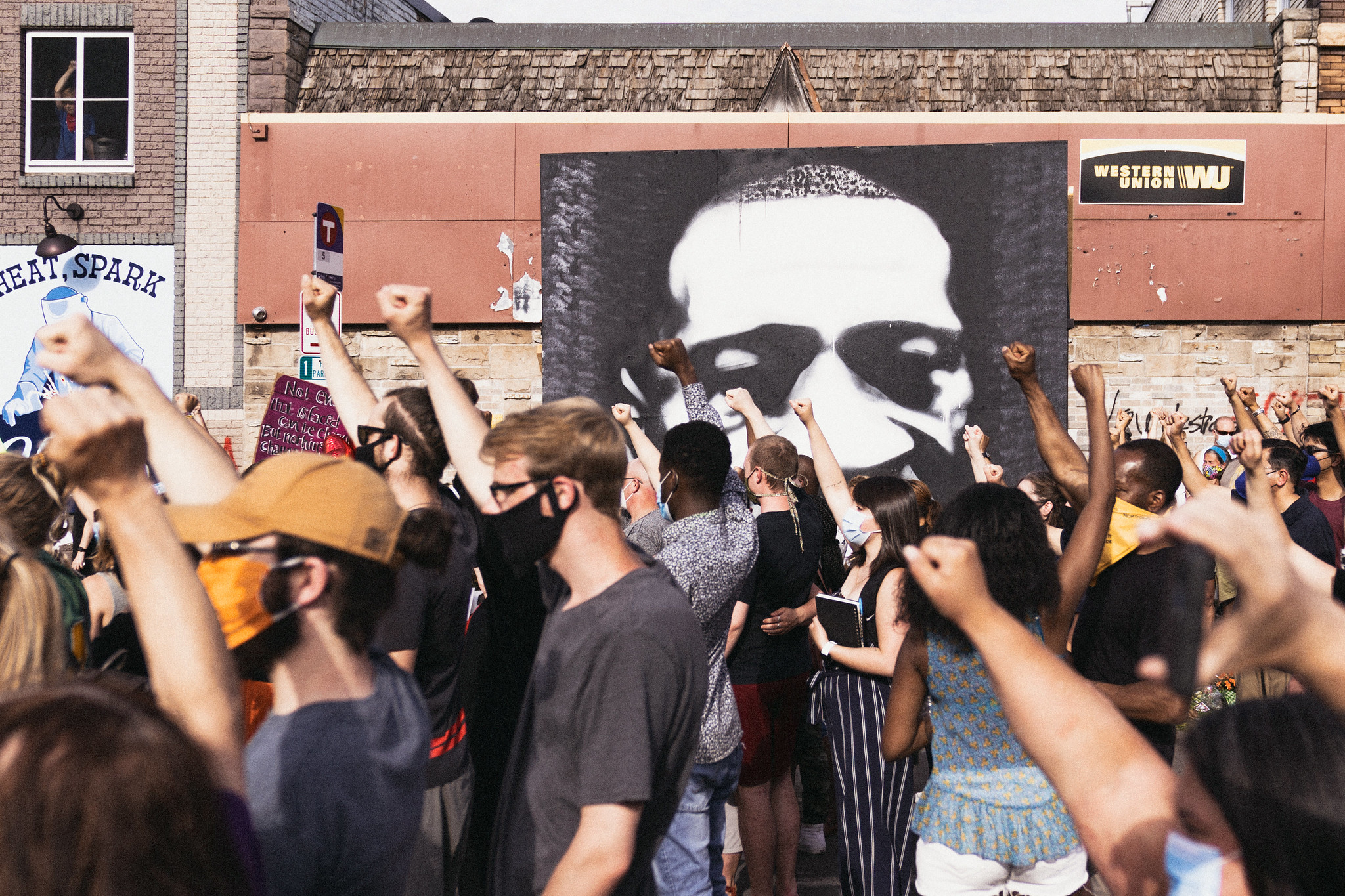In April 2022, Democracy Fund announced our new organizational strategy with a commitment to investing in the power and leadership of communities of color to strengthen and expand the pro-democracy movement and undermine those who threaten the ideals of our inclusive, multi-racial democracy.
Our political system and our media have been designed from the start to exclude and marginalize people of color, who have nonetheless often been on the frontlines reinventing journalism and strengthening democracy. The authoritarian movement has leveraged the flaws in our media to spread hate, manipulate public discourse, and build news ecosystems to amplify its vision for America. With this in mind, our Public Square program has revised its strategies to better meet the moment we are in. We want to ensure that all people have access to news and information that advances justice, confronts racism and inequality, and equips people to make change and thrive.
Our new five-year strategies are rooted in and build on the wisdom, experience, and vision of many of our grantees: we are deeply grateful to them for blazing the trails. We also want to recognize the many other leaders who have pioneered the work of media justice, community reporting, and movement journalism. Their efforts have often centered solidarity with communities and understood the urgent need for journalism that stands boldly for equity and democracy. Their work didn’t always find a home in our earlier strategies, and we are working to change that as we move forward and learn from the past.
The strategies below are focused on our Equitable Journalism work, which makes up half of our team’s grantmaking. We will provide updates on our Digital Democracy strategy when decisions are finalized (and you can expect to see similar updates from other Democracy Fund programs). We are excited to share the strategy and ideas that shape our journalism and media funding, but we recognize that these are just words on a page until we live into them.
Journalism must build power for an inclusive multi-racial democracy
Our Equitable Journalism strategy envisions people all across America exercising their power — making decisions for their families, mobilizing their neighbors and friends, and organizing in their communities — fueled by local reporting that equips people for civic action and serves them as partners. To get there, we believe we need to foster a reimagined local news and information landscape and an explicitly anti-racist public square, led by people who have historically been marginalized in our media and our democracy.
Throughout American history it has been leaders of color, especially those who are women or queer, who have pushed democracy and media forward, pioneering critical new community solutions and pushing for our country and our newsrooms to live up to their highest ideals. Our strategy process was informed by that history, and by the imagination and vision of bold leaders working today.
In support of this vision, our Public Square program will be funding journalism and media through two areas of focus within our Equitable Journalism work:
- Our News and Information Ecosystems initiative will continue to support the evolution of local news in America by building more vibrant ecosystems and equitable networks across the nation that reimagine news and information as civic infrastructure.
- Our Journalism and Power Building initiative will expand support for leaders of color, and the coalitions and organizations they lead, who are changing journalism and using media to build power and catalyze movements for equity, justice, and democracy.
These areas of focus build on lessons we have learned over the last six years. We have listened deeply to what grantees were saying about how journalism needs to show up in this moment of democratic crisis, the longtime harms media has perpetuated that got us here, and the role of philanthropy in exacerbating these challenges. We have collected some of that learning in an evaluation Impact Architects produced, which covers the last six years of our work. We were also guided by an advisory group including Alicia Bell of the Racial Equity in Journalism Fund, Courtney Lewis of the Institute for Nonprofit News, Jessica Gonzáles of Free Press, Lizzy Hazeltine of the NC Local News Lab Fund, and Chenjerai Kumanyika of New York University.
Some changes you will see in our journalism funding
In the next five years, we are focusing our support on those leaders and organizations we believe can help create a more anti-racist, community-centered media and advance transformative change in our public square. Key to that work will be shifting from a focus on incremental change in journalism institutions to transformative change. This transformative change must be rooted in movements, trailblazers, and coalitions inside and outside journalism that are building a new vision for what journalism can be and do in our democracy, who it works for, and with.
A few of the key shifts include:
- Our new strategy will more explicitly elevate equity and racial justice as defining values across our entire portfolio by centering the work of leaders of color and those who have long been marginalized from journalism and democracy. We will invest more in those leaders and will focus on moving others in philanthropy in that direction.
- We’ve long talked about informed communities as key to our democracy, but our new strategy is much clearer that information is power. We want to support news and information that equips people to build power for an inclusive multi-racial democracy.
- We will invest less in large institutions and more in coalitions, networks and campaigns that help organize innovators in journalism to change the industry.
- We no longer have a separate stand-alone press freedom strategy. Over the last five years, we’ve come to understand press freedom as a key part of sustainability and so we’ll still be funding some press freedom work as part of the infrastructure necessary to grow and sustain a truly independent media sector. We’ll also be leaning into efforts to confront harassment and abuse meant to silence journalists, especially people from marginalized communities.
As we move into our new strategies, we’re excited to continue learning and growing, and will be transparent, accessible and accountable along the way.
Moving into the next five years
While the struggles facing our public square are profound, there is real momentum growing around civic media and local news right now. All across the country we see incredible examples of people reimagining, rebuilding, and renewing journalism and the role it plays in our democracy. Those of us in philanthropy have a critical role to play in catalyzing this movement to ensure that the next era of independent media in America is just, equitable and thriving. A key part of our new strategies will also be continuing to partner with other funders to ensure we can meet this moment.
There are still many decisions left about who and how we will fund to make this vision a reality. We’ll be sharing more information, updating our website, and considering new grantees in 2023 and we welcome your partnership and accountability as we go down this path. If you have questions about our new strategy, please reach out to me — my door is always open. Again, my deepest thanks for your ongoing partnership.







